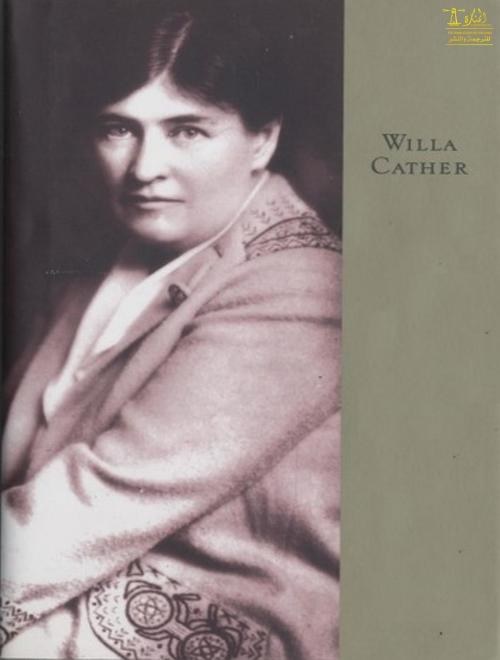Not Under Forty
Nonfiction, Entertainment, Drama, Anthologies, Fiction & Literature, Literary Theory & Criticism| Author: | Willa Cather | ISBN: | 9780599456549 |
| Publisher: | Lighthouse Books for Translation Publishing | Publication: | May 10, 2019 |
| Imprint: | Lighthouse Books for Translation and Publishing | Language: | English |
| Author: | Willa Cather |
| ISBN: | 9780599456549 |
| Publisher: | Lighthouse Books for Translation Publishing |
| Publication: | May 10, 2019 |
| Imprint: | Lighthouse Books for Translation and Publishing |
| Language: | English |
For Willa Cather, "the world broke in two in 1922 or thereabouts." The whole legacy of Western civilization stood on the far side of World War I, and in the spiritually impoverished present she looked back to that.
Willa Cather, in full Wilella Sibert Cather, (born December 7, 1873, near Winchester, Virginia, U.S.—died April 24, 1947, New York City, New York), American novelist noted for her portrayals of the settlers and frontier life on the American plains.
At age 9 Cather moved with her family from Virginia to frontier Nebraska, where from age 10 she lived in the village of Red Cloud. There she grew up among the immigrants from Europe—Swedes, Bohemians, Russians, and Germans—who were breaking the land on the Great Plains.
Meet extraordinary women who dared to bring gender equality and other issues to the forefront. From overcoming oppression, to breaking rules, to reimagining the world or waging a rebellion, these women of history have a story to tell.
At the University of Nebraska she showed a marked talent for journalism and story writing, and on graduating in 1895 she obtained a position in Pittsburgh, Pennsylvania, on a family magazine. Later she worked as copy editor and music and drama editor of the Pittsburgh Leader. She turned to teaching in 1901 and in 1903 published her first book of verses, April Twilights. In 1905, after the publication of her first collection of short stories, The Troll Garden, she was appointed managing editor of McClure’s, the New York muckraking monthly. After building up its declining circulation, she left in 1912 to devote herself wholly to writing novels.
Cather’s first novel, Alexander’s Bridge (1912), was a factitious story of cosmopolitan life. Under the influence of Sarah Orne Jewett’s regionalism, however, she turned to her familiar Nebraska material. With O Pioneers! (1913) and My Ántonia (1918), which has frequently been adjudged her finest achievement, she found her characteristic themes—the spirit and courage of the frontier she had known in her youth. One of Ours (1922), which won the Pulitzer Prize, and A Lost Lady (1923) mourned the passing of the pioneer spirit.
In her earlier Song of the Lark (1915), as well as in the tales assembled in Youth and the Bright Medusa (1920), including the much-anthologized “Paul’s Case,” and Lucy Gayheart (1935), Cather reflected the other side of her experience—the struggle of a talent to emerge from the constricting life of the prairies and the stifling effects of small-town life.
Cather’s will erected strong protections around her intellectual property, preventing adaptations of her fiction and forbidding publication of her correspondence. However, upon the 2011 death of a nephew who had served as her last designated executor, copyright of her work passed to the Willa Cather Trust. The trust—a partnership of the Willa Cather Foundation, Cather’s remaining family, and the University of Nebraska Foundation—lifted the prohibitions on publishing her letters. Though Cather had destroyed much of her own epistolary record, nearly 3,000 missives were tracked down by scholars, and 566 were collected in The Selected Letters of Willa Cather (2013).
For Willa Cather, "the world broke in two in 1922 or thereabouts." The whole legacy of Western civilization stood on the far side of World War I, and in the spiritually impoverished present she looked back to that.
Willa Cather, in full Wilella Sibert Cather, (born December 7, 1873, near Winchester, Virginia, U.S.—died April 24, 1947, New York City, New York), American novelist noted for her portrayals of the settlers and frontier life on the American plains.
At age 9 Cather moved with her family from Virginia to frontier Nebraska, where from age 10 she lived in the village of Red Cloud. There she grew up among the immigrants from Europe—Swedes, Bohemians, Russians, and Germans—who were breaking the land on the Great Plains.
Meet extraordinary women who dared to bring gender equality and other issues to the forefront. From overcoming oppression, to breaking rules, to reimagining the world or waging a rebellion, these women of history have a story to tell.
At the University of Nebraska she showed a marked talent for journalism and story writing, and on graduating in 1895 she obtained a position in Pittsburgh, Pennsylvania, on a family magazine. Later she worked as copy editor and music and drama editor of the Pittsburgh Leader. She turned to teaching in 1901 and in 1903 published her first book of verses, April Twilights. In 1905, after the publication of her first collection of short stories, The Troll Garden, she was appointed managing editor of McClure’s, the New York muckraking monthly. After building up its declining circulation, she left in 1912 to devote herself wholly to writing novels.
Cather’s first novel, Alexander’s Bridge (1912), was a factitious story of cosmopolitan life. Under the influence of Sarah Orne Jewett’s regionalism, however, she turned to her familiar Nebraska material. With O Pioneers! (1913) and My Ántonia (1918), which has frequently been adjudged her finest achievement, she found her characteristic themes—the spirit and courage of the frontier she had known in her youth. One of Ours (1922), which won the Pulitzer Prize, and A Lost Lady (1923) mourned the passing of the pioneer spirit.
In her earlier Song of the Lark (1915), as well as in the tales assembled in Youth and the Bright Medusa (1920), including the much-anthologized “Paul’s Case,” and Lucy Gayheart (1935), Cather reflected the other side of her experience—the struggle of a talent to emerge from the constricting life of the prairies and the stifling effects of small-town life.
Cather’s will erected strong protections around her intellectual property, preventing adaptations of her fiction and forbidding publication of her correspondence. However, upon the 2011 death of a nephew who had served as her last designated executor, copyright of her work passed to the Willa Cather Trust. The trust—a partnership of the Willa Cather Foundation, Cather’s remaining family, and the University of Nebraska Foundation—lifted the prohibitions on publishing her letters. Though Cather had destroyed much of her own epistolary record, nearly 3,000 missives were tracked down by scholars, and 566 were collected in The Selected Letters of Willa Cather (2013).















